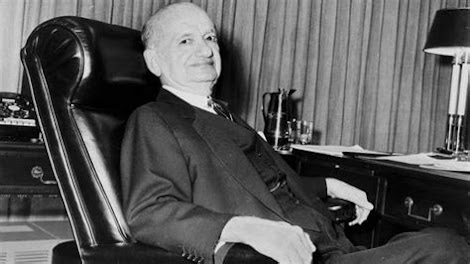SUFFOLK PUNCH
If it's not here, it doesn't matter.
Monday, May 17, 2021
THE NEW BOOK: IMPRESSIONS AND CORRECTIONS
Monday, May 03, 2021
THE BORDESLEY GREEN HAIRTIQUE
Friday, April 23, 2021
The Last Time I Saw Ipswich
Sunday, March 28, 2021
HEROIN LOVE SONGS
Thursday, March 25, 2021
WHEN THE POET MAKES SUBMISSIONS
Monday, March 01, 2021
POEM: EIGHT HOURS AT WORK ARGUING ABOUT GOD WITH A CHRISTIAN
This poem, just finished, was a response begun years ago to a long night of argument with a man who called himself a Christian but belonged to an extreme, politically conservative wing of the religion characterised by its incredible, nauseating intolerance. Which has nothing to do at all, as far as I know, with the message of peace, love and universal compassion taught by Jesus. If you stick with the poem, you'll see I'm not mocking Christianity so much as rationalised bigotry and hatred.
EIGHT HOURS AT WORK ARGUING ABOUT GOD WITH A CHRISTIAN
Tonight the imbeciles are out in force.
You've wittered on for hours (you’re still not hoarse)
about Heaven, Jesus' resurrection.
You’ve laughed at natural selection.
You’ve flashed your beatific Christian smile
and said humanity is sinful, while
expressing certainty that you’ve been saved.
You’ve told me alcoholics are depraved;
condemned all junkies; said they’re criminals.
You've claimed low earners lack the wherewithal
to make their own luck as you have done,
a leafy middle-class suburban son.
I’ve offered arguments, annoyed and bored,
but you’ve continued. You have too much Lord
to give up at five hours, six or seven.
It’s your job to drag lost souls to Heaven.
And yet the torch of God inside you fails
porn stars, pole dancers, thieves and Muslim males,
and women who abort their unborn child.
They, more than anybody, you’ve reviled.
You’ve asked how many times we must forgive.
You’ve said there is decay; that how we live's
corrupt, where it was clean as spring rain, pure,
in the Fifties, when nobody would lock their door,
and upright girls never masturbated.
(But gay men were poisoned and castrated.)
If you've been trying to recruit me, man,
you've failed. We've ended where we both began.
Perhaps your Heaven might make sense to me
and other Heathens if we didn’t see
such bigotry in you. ‘Judge not,’ God warns,
unless you want to meet the bloke with horns.
Perhaps you'd take a few more strays to glory
if you didn’t sound like such a Tory,
and one Charles Dickens might have recognised:
all church, hard work and healthy exercise.
Being black, you say, makes you a Labour man.
I've told you twice, I don't see how you can
be, thinking welfare should be cut long-term:
one year, perhaps or ‘they’ will never learn
to get up off their backsides like you did;
‘they’ll’ make a soft life on the dole instead.
No Labour person would ever think that way,
and I doubt that Christ would ever speak of ‘they’.
All true adherents of the great faiths know,
and frankly I shouldn’t have to tell you so,
‘they’, mate, are ‘we’ and ‘we’ is only ‘I’
a billion billion people multiplied.
When you stand singing at your local church
with the monied Baptists, have you ever searched
your Bible, and found a passage, even one,
where God says, 'Hey, you're rich, salvation done?'
I think you'll find it's 'Give it to the poor',
and when I say I think, I mean I'm sure.
I think you'll find it's 'Heaven’s gates are shut
to greedy and self-righteous bastards but
don’t worry, there’s another place for you.
It’s warm year-round and full of preachers too.'
.
.
Friday, February 26, 2021
THE VOICE IN POETRY
Saturday, February 20, 2021
PUBLICATION NEWS
Thursday, January 28, 2021
FLYING LOW: ON THE DEATH OF MARGARET THATCHER
Going through my files tonight I found a poem I wrote about the death of Margaret Thatcher. It's never been published anywhere before.
FLYING LOW
(Northampton 13/4/13)
The Union Jack is flying low
today outside the Courts
marking the death of Margaret
on whose behalf they fought.
They screwed the rainbow travellers
and gays and peace protestors
and gave my union rights away
to company directors.
And every time I tried to march
to show them my frustration
a copper clubbed me, and became
the hero of the nation.
The Courts of Law have always been
protectors of the rich
once Margaret’s, now Cameron’s
and corporate Britain’s bitch.
The small man gets a crumb sometimes
to keep him from rebelling
and then he’s taxed for harbouring
a spare room in his dwelling.
The Union flag is flying low
where rich folk practise law
conspiring to dispossess
the hungry and the poor.
The Union Jack is flying low
the country is in mourning
the Courts of Law should bitterly
lament their own suborning.
The Union Jack is flying low
it hangs limp in the rain
to mark the death of Margaret
and justice just the same.
Monday, December 07, 2020
WHEN THE STORM IS COMING: WHAT EPILEPSY IS LIKE ON THE INSIDE
Tuesday, October 13, 2020
Northampton Keeps Its Best Venues...For Now.
Saturday, October 03, 2020
'Years of Poetical Prosing': John Clare and the Shoe Town Tradition
Saturday, September 26, 2020
The Trial of the Chicago Seven (Well, Eight)
Julius Hoffman
Bobby Seale














